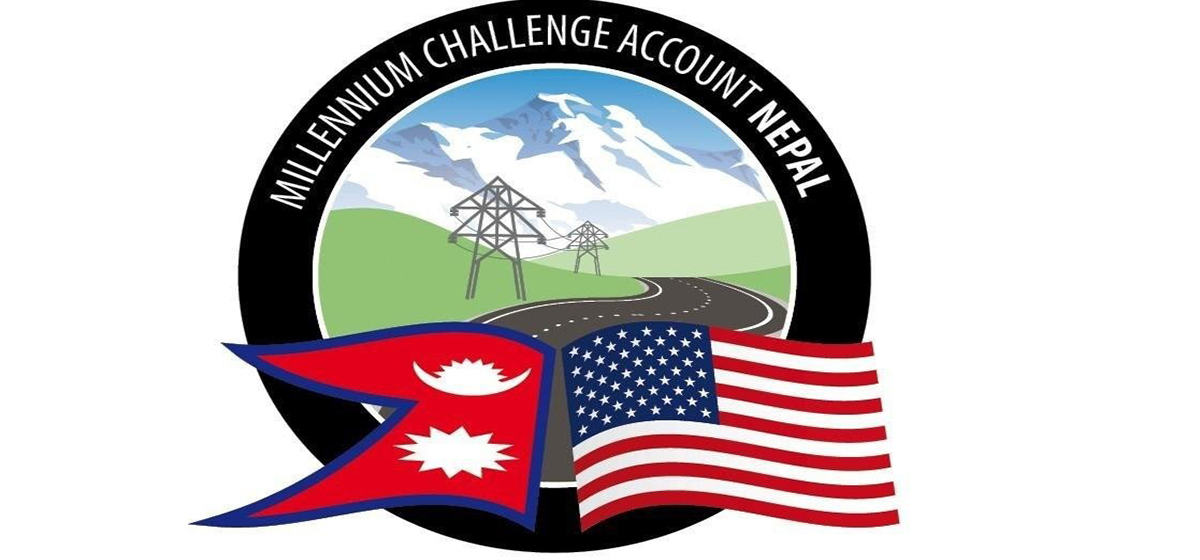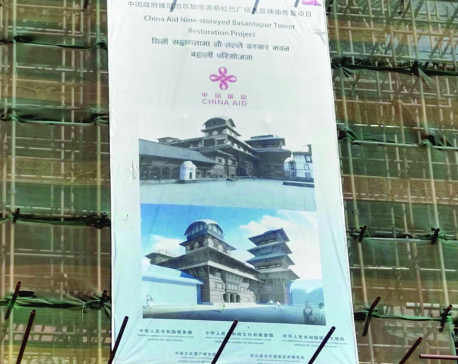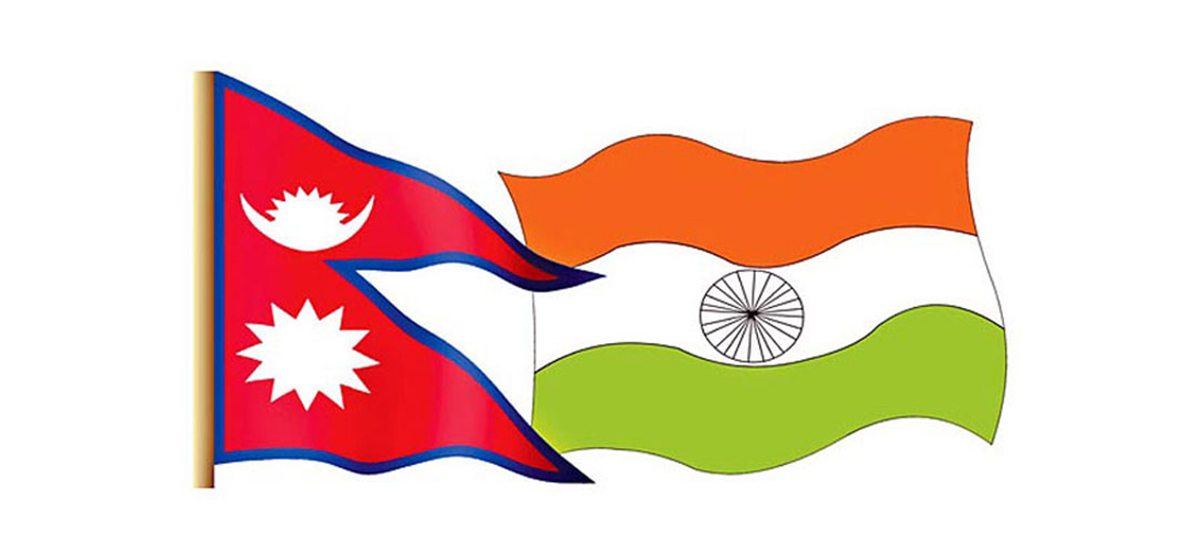
OR
Opinion
MCC, Indo-PacificStrategy and Nepal-US Relations
Published On: January 13, 2022 06:30 AM NPT By: Dron Lamichhane


Dron Lamichhane
Lamichhane is affiliated with the Institute of Foreign Affairs (IFA), a government think tank under the Ministry of Foreign Affairs, and is pursuing his Mphil/Phd at the Department of International Relations and Diplomacy, TU.news@myrepublica.com
Now, Nepal's diplomatic capability should be proven to convince the USA to review some controversial provisions in the MCC and then we can pass the agreement from the federal parliament which will be a win-win situation not only for Nepal and the USA but also for the USA and China.
There has been a lot of confusion, misunderstanding on the MCC-funded project in Nepal and it has created a great political divide. Those opposing the MCC Nepal Compact see it as a part of the "Indo-Pacific Strategy" to counter China's economic and strategic influence. On the contrary, those who are in favor of the MCC see it as an economic grant. The MCC is the largest grant agreement Nepal has ever signed. Nepal was selected as eligible to develop a compact program with MCC. Nepal was the first country in South Asia to qualify for the compact after it met 16 out of the 20 policy indicators. This is the first grant agreement that requires parliamentary approval. It has been registered at the federal parliament for ratification, however; the Nepali parliament has yet to ratify the MCC Nepal Compact. As a result, US had said further delay could force it to divert the grant assistance to some other countries. Therefore, political and diplomatic crises are growing in Nepal.
The most debatable and controversial issue in MCC Nepal is whether the MCC Nepal Compact falls under the Indo-Pacific strategy proposed by the US? Whether it has a security impact on Nepal or not? Will the project be audited by Nepal or the US? and whether the agreement is above Nepal’s constitution? Because of these controversial issues Nepali intellectuals, political leaders, and academics have stood against the MCC project. Some of them argue that many of the provisions in the MCC may threaten Nepal's sovereignty in the long run. The controversial Indo-Pacific Strategy has become a hot topic in Nepal after the visit of the then Foreign Minister Pradeep Gyawali to Washington DC and his meeting with US Secretary of State Mike Pompeo. During the meeting, according to a State Department release, Nepal’s central role in a free, open, and prosperous Indo-Pacific was highlighted. Since Nepal is the chair nation of SAARC and a member state of BIMSTEC, the US reckons that Nepal can play a crucial role in the Indo-Pacific region. The US has consistently been urging Nepal through several US officials in Nepal to play a key role in a free and open Indo-Pacific. Further, the United States’ June 1, 2019, Indo-Pacific Strategy Report very clearly mentions that China is a revisionist power and a threat, while Nepal maintains friendly relations with China.
After four months of signing BRI, Nepal signed an agreement on US's MCC project on 14 September 2017 for building a 400 KV high voltage transmission line and upgrading roads. Between the US and China strategic and economic competition is ongoing. We have seen the trade war and growing geopolitical, security rivalry in various fields which also helps Nepali intellectuals, political leaders to suspect whether MCC is just an economic project or it has a geopolitical interest. To seek further clarifications, on 3 September 2021, a letter with questions regarding the MCC Nepal Compact was sent by the Nepal Ministry of Finance to the MCC’s headquarters in Washington DC. The MCC sent an 11-page response. In its response to the questions and queries, the MCC dismissed the Nepali doubt. Further, to convince the Nepali political leadership, the MCC’s Vice President, Fatema Z Sumar, arrived in Kathmandu on 9 September 2021 and held meetings with leaders from both the ruling coalition and the opposition.
In the past, some intellectuals argued that if we have accepted the BRI project, why don’t we believe in the MCC Compact? Afterall, Nepal was selected as an eligible country after it met 16 out of the 20 policy indicators. On the other hand, Nepal's foreign policy has been guided by the basic principle of non-alignment. As the authentic documents have proved that the MCC is part of IPS, Nepal's involvement in the MCC without revision in some articles and sub-articles mentioned above will be a violation of Nepal's non-aligned foreign policy. On the other hand, engaging with some but not others goes against Nepal’s guiding principle of “amity with all and enmity with none” and likely jeopardizes Nepal’s neutrality.
Nepal and the USA have 75 years of diplomatic relations and the US is the second country, after the United Kingdom, to establish diplomatic ties with Nepal. If the MCC compact fails to get parliamentary approval and the US has to divert the grant assistance elsewhere, Nepal’s ties with the US could suffer, and also, that will give a wrong message to the aid and investment scenario in Nepal. Further, Nepal's economic diplomacy especially with some global institutions like the World Bank, IMF, and the WTO will become weak.
What is the solution then? It is a crucial question for Nepal. We have to use strategic autonomy, Nepal must form its own set of strategies and policies to cope with this changing power dynamics. Now, Nepal's diplomatic capability should be proven to convince the USA to review some controversial provisions, and then we can pass the agreement from the federal parliament which will be a win-win situation not only for Nepal and the USA but also for the USA and China. In this situation, Nepal will be able to handle the diplomatic crisis to be raised in the future and can maintain the balance and harmonious relations with both global powers for her economic benefits and prosperity. Thus, in this situation, Nepali political parties should focus on national interests rather than their own interests.
(Lamichhane is affiliated with the Institute of Foreign Affairs (IFA), a government think tank under the Ministry of Foreign Affairs and is pursuing his Mphil/Phd at the Department of International Relations and Diplomacy, TU.)
You May Like This

Taking Nepal forward with MCC
In a situation where we seek enhanced international investment, a big question that also arises is - is it in... Read More...

MCC Nepal: A Leap toward Prosperity or a Surrender of Sovereignty?
MCC must come with some amendments and the clauses must be written more clearly, respecting the sovereignty and voices of... Read More...

Alleyway to Beijing
Centralization of all authority in Baluwatar continues unchallenged. Federalism is slowly being turned into a farce. Fundamental freedoms are... Read More...



Just In
- WB to take financial management lead for proposed Upper Arun Project
- Power supply to be affected in parts of Kathmandu Valley today as NEA expedites repair works
- Godepani welcomes over 31,000 foreign tourists in a year
- Private sector leads hydropower generation over government
- Weather expected to be mainly fair in most parts of the country today
- 120 snow leopards found in Dolpa, survey result reveals
- India funds a school building construction in Darchula
- Exploring opportunities and Challenges of Increasing Online Transactions in Nepal







_20220508065243.jpg)








Leave A Comment